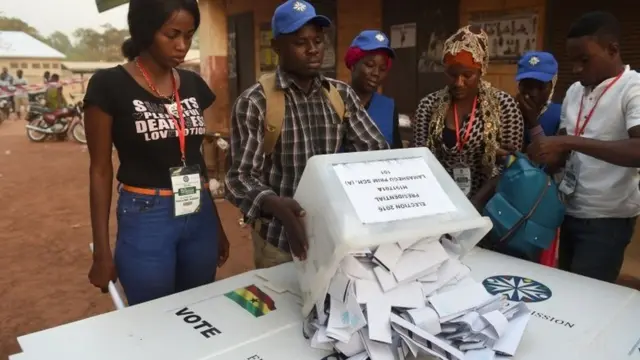As Ghana prepares for the December 7 general elections, the critical issue of vote buying and selling has once again come under the spotlight.
A phenomenon deeply ingrained in the country’s electoral culture; it poses a significant threat to the integrity of democratic processes.
Vote buying refers to offering voters money, goods, or favors in exchange for votes or electoral support. In contrast, vote selling is the willingness of voters to trade their votes for material gains.
This transactional relationship has become a persistent concern, particularly during competitive elections, where political parties and candidates often deploy monetary incentives or distribute items such as food, clothing, and household goods.
The phenomenon, often rationalized as a response to poverty and voter disenfranchisement, has complex socio-economic and political implications.
It not only diminishes the power of the electorate to make informed choices but also compromises the accountability of elected officials, as they may prioritize recouping campaign expenses over addressing the needs of their constituents.
The founding member of the ruling New Patriotic Party (NPP), Dr. Nyaho Nyaho-Tamakloe, has expressed strong disapproval of Lydia Alhassan, the embattled Member of Parliament (MP) for Ayawaso West Wuogon, over her alleged involvement in distributing food to security officials waiting in line to vote during the special voting exercise.
In his critique, Dr. Nyaho-Tamakloe called for her arrest and prosecution, adding that her actions were unbefitting of a lawmaker and detrimental to the integrity of Ghana’s democratic process.
A Call for Accountability

Dr. Nyaho-Tamakloe criticized the distribution of food and expressed disappointment with the security officials who accepted the packages.
“I mean, it was being done openly. Now don’t we forget ourselves that we are in a new technology world. So, anything you say, and anything you do can be [captured]. It was so shameful.”
Dr. Nyaho Nyaho-Tamakloe founding member New Patriotic Party (NPP)
The act of distributing food to individuals responsible for safeguarding the election process raised serious concerns about neutrality and professionalism. He emphasized;
“What hurt me most was that these people in line to go and vote were security personnel. And I didn’t see one of them rejecting it. And what also disturbed me was that, the parliamentary candidate for that particular constituency when questioned she denied it. Such a person is not qualified.
In fact, if it had been in a civilized country, she should have left that contest by now. The party will demand that she leave. She denied flatly that she had not been there when she had been captured on video. We don’t need such people in parliament. We don’t need such people as lawmakers. They will destroy this country. Indeed, I will pray that she loses the election, if she’s still going to contest because she is a person you cannot rely [on].”
Dr. Nyaho Nyaho-Tamakloe founding member New Patriotic Party (NPP)
Dr. Nyaho-Tamakloe’s comments reflect growing concerns within the NPP and the broader political landscape regarding ethical standards and accountability in Ghanaian politics.
His remarks underscore the need for rigorous enforcement of electoral laws to uphold the integrity of the democratic process.
As the Ayawaso West Wuogon contest unfolds, the allegations against Lydia Alhassan could have significant implications for her candidacy and the reputation of the New Patriotic Party.
READ ALSO; Stonebwoy Advocates for Including Local Players in National Team




















